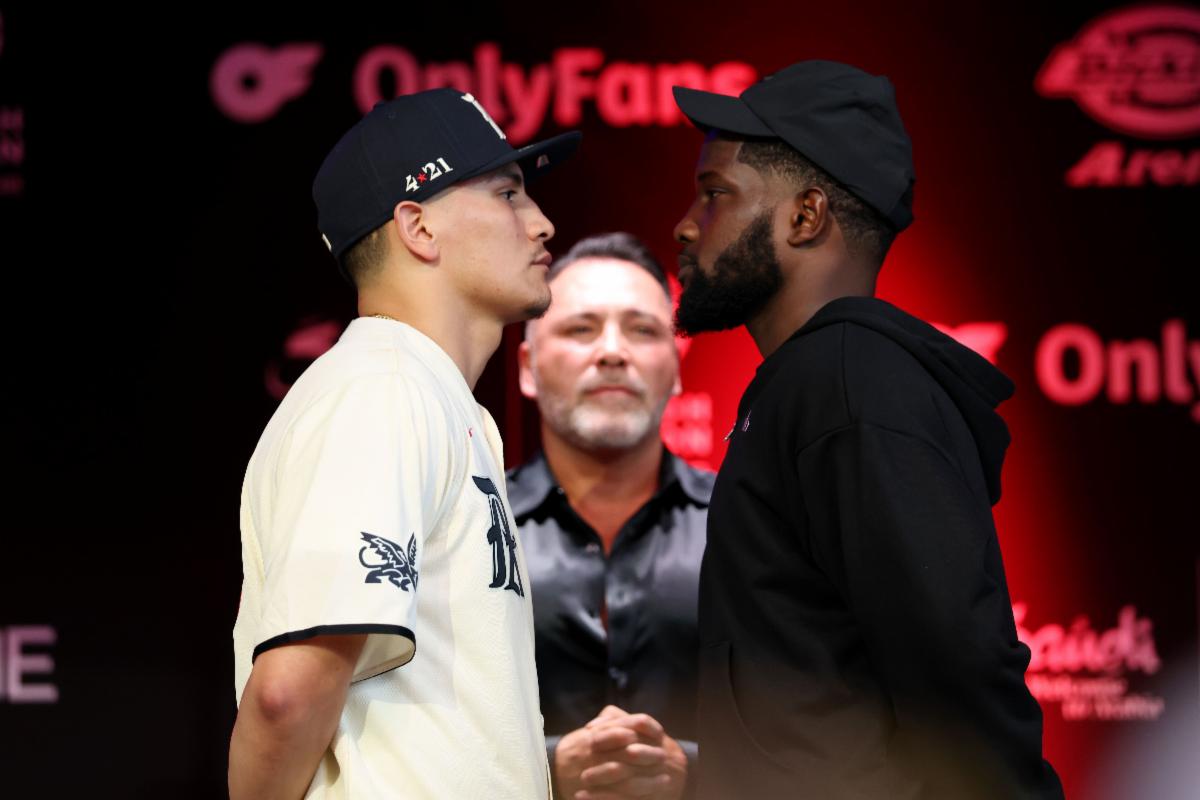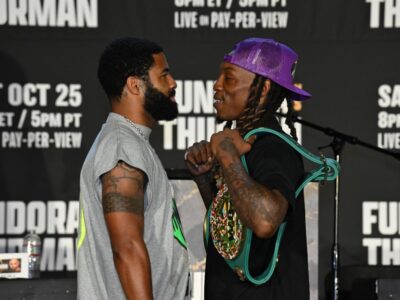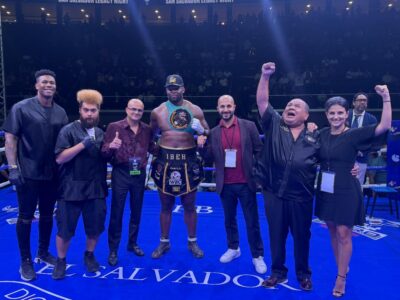Should Junior Jones Return To The Ring?
By Robert Brizel, Real Combat Media Correspondent
*All photos Copyright Robert Brizel, Real Combat Media, All Rights Reserved
Brooklyn, NY (December 21, 2012)–Brooklyn native Junior ‘ Poison’ Jones held various world boxing titles at bantamweight, super bantamweight, featherweight and super featherweight, compiling a record of 50-6 with 28 knockouts during his professional boxing career, which went from June 1989 to December 2002. Now 42 years old, and retired for over a decade, Jones is one of many a forgotten fighter who might throw his hat back inside the ring, for better or for worse. From George Foreman to Jerry Quarry, from Muhammad Ali to Iron Mike Tyson, from Thomas Hearns to Boone Pultz, from Axel Schultz to Mitch Green, from Jack Johnson to Levi Forte, from Bob Fitzsimmons to Saoul Mamby, many have tried to comeback, with mixed success. Rocky Marciano was one of the few to retire undefeated and stay retired, but part of his reasoning was dislike for his lifetime percentage contract with manager Al Weill, which Rocky had signed.
Jones has one distinct advantage. Jones has not been hit in the head for over a decade. Making regular appearances at ringside, and appearing to be in good emotional and physical condition, does not mean passing the boxing medical examinations. Many a boxing card has been snuffed out for that reason.
Jones lost a ten round decision to Ivan Alvarez in his final bout in December 2002. Of the last fifteen fights of Alvarez, Junior Jones was the only fight he won, and Jones could only win one round on one judge’s scorecard.
Jones had won the International Boxing Organization Featherweight title in April 199 by stopping Richard Evatt in the eleventh round, and then decisioned Tracy Harris Patterson in November 1999. Jones then vacated his IBO world title to challenge Paul Ingle for the International Boxing Federation Featherweight title in Madison Square Garden in April 2000, but was stopped in the eleventh round. In Ingle’s next bout, Ingle was knocked out by Mbulelo Botile in the twelfth round and underwent surgery to remove a brain clot, ending his boxing career.
In April 2001, Jones decisioned Manuel Cepeda over ten rounds, then knocked out Mike Juarez in the seventh round to win the vacant International Boxing Association Continental Americas Super Featherweight title in October 2001. In November of 2002, Jones won a ten round decision over 18-4 Johnny Walker in a Florida bout.
Then why did Jones lose to Alvarez? Lack of boxing ability? Lack of interest? Lack of proper training? Physical injuries. A fighter of the caliber of Jones should not have lost to a fighter like Ivan Alvarez, but Danny ‘Little Red’ Lopez could probably tell you why. 12 years after losing a rematch with Salvador Sanchez in a failed bid to regain his WBC Featherweight title, the 39 year old Lopez got knocked out by a chopping right thrown by 10-26-2 Jorge Rodriguez.
It was not pretty to watch a 40 year old Sugar Ray Leonard get dropped and stopped by Hector Macho Camacho. Azumah Nelson tried his luck at age 49 in his third match with Jeff Fenech and lost (a majority decision). For Junior Jones, it all would depend where he got licensed, and who he decided to fight. So long as he passes the prefight physical, it will be his decision. As for winning a fifth world title at 140 pounds, it would depend which belt he fought for. But he returns and loses, that would be the immediate end of the game. And 140 pounds light welterweight is a rough, competitive division, with rough tough and hungry competition.
Perhaps, as a trainer, Junior Jones could explain, the walls just get too quiet when you retire. That, and the killer instinct, is probably the reason some fighters just cannot stay away from the ring. For others, like James Jeffries, the public demanded it. Jeffries (like Muhammad Ali versus Larry Holmes) was like a Rolex watch case without the Rolex inside when he fought Jack Johnson. Joe Louis was broke and washed up badly when Rocky Marciano knocked him out and ended his comeback. Tommy Morrison came back by circumventing established medical exams and procedures.
Junior Jones has to carefully assess what he has left in the tank, and come to his own conclusions. As evidenced by the recent comeback win of 50 year old pro boxer Mark Weinman, perhaps anything is possible if you believe in yourself. The key to boxing comebacks is for a boxer to know their limits, what they can and cannot do, and take it from that point. The analogy is, some comebacks are possible, and some aren’t. Bobby Fischer came back in chess in 1992 after 20 years away from the game. But chess does not require comprehensive medical examinations, boxing does.
DONATE TO THE VICTIMS OF HURRICANE SANDY : www.redcross.org/donate
HELP STOP WORLD HUNGER: www.realcombatmedia.com/rcm-stop-world-hunger
LEARN HOW TO FIGHT, WORKOUT & IMPROVE ENDURANCE: RCM MMA & BOXING STORE
We are always looking for new talent for the fastest growing US and UK based, Combat website. We have openings for the following positions – Internet Sales Advertising, Boxing Correspondents, MMA Correspondents and voluntary Radio Correspondents. There are also plenty of advertising and sponsorship opportunities available on our website for your business.
If you are a career minded individual and serious about starting a career or continuing your career in combat journalism, our contacts are below.
RCM Main contact: [email protected]
RCM UK & Ireland contact: [email protected]
RCM Greece contact: [email protected]
RCM Radio contact: [email protected]
RCM Radio contact: [email protected]
RCM MMA contact: [email protected]
RCM UK Advertising contact: [email protected]
RCM MMA Advertising contact: [email protected]


Add us to your circle on GOOGLE PLUS Real Combat Media










No Comments Yet